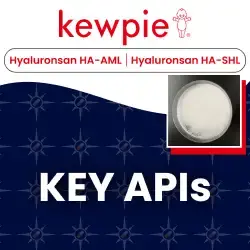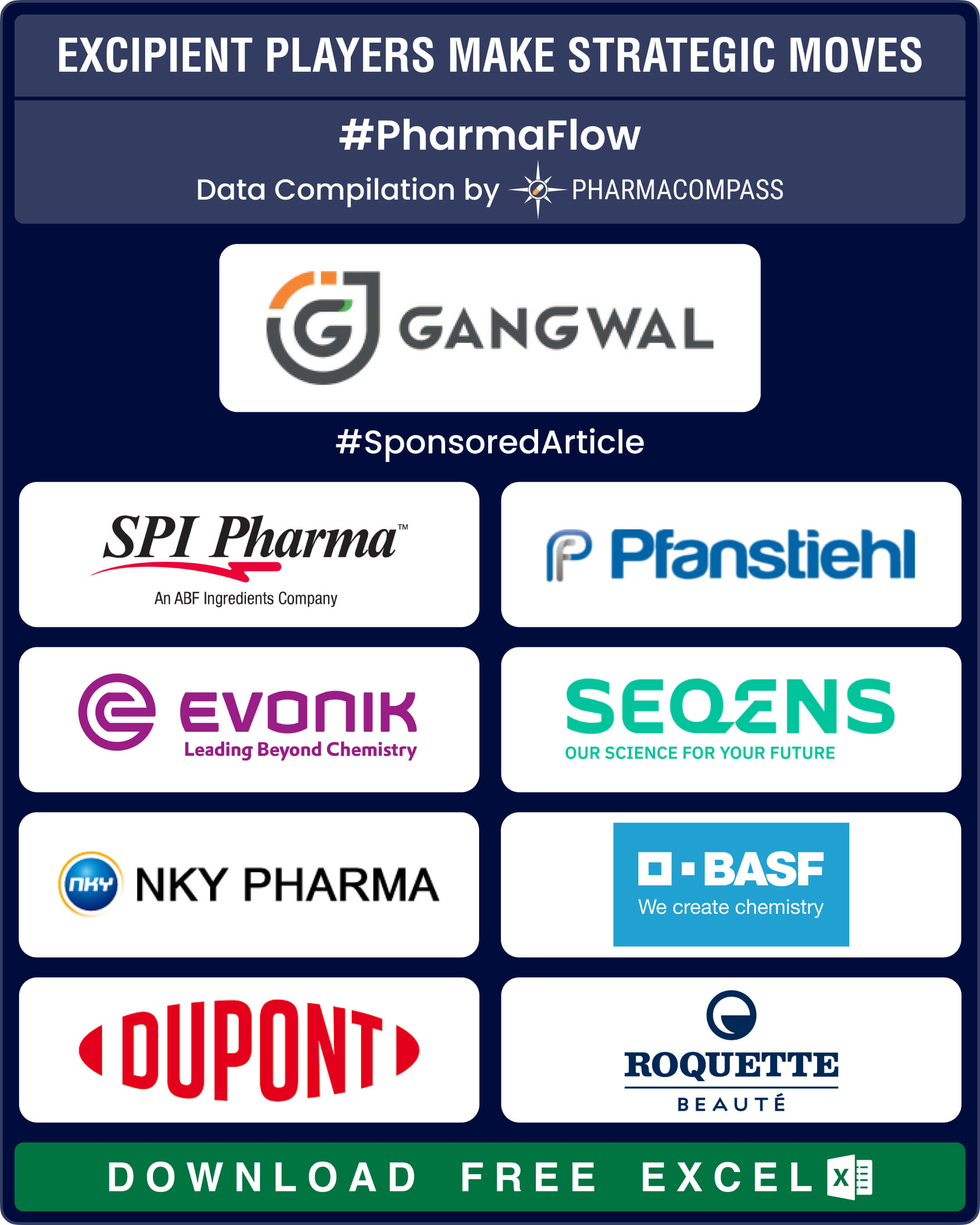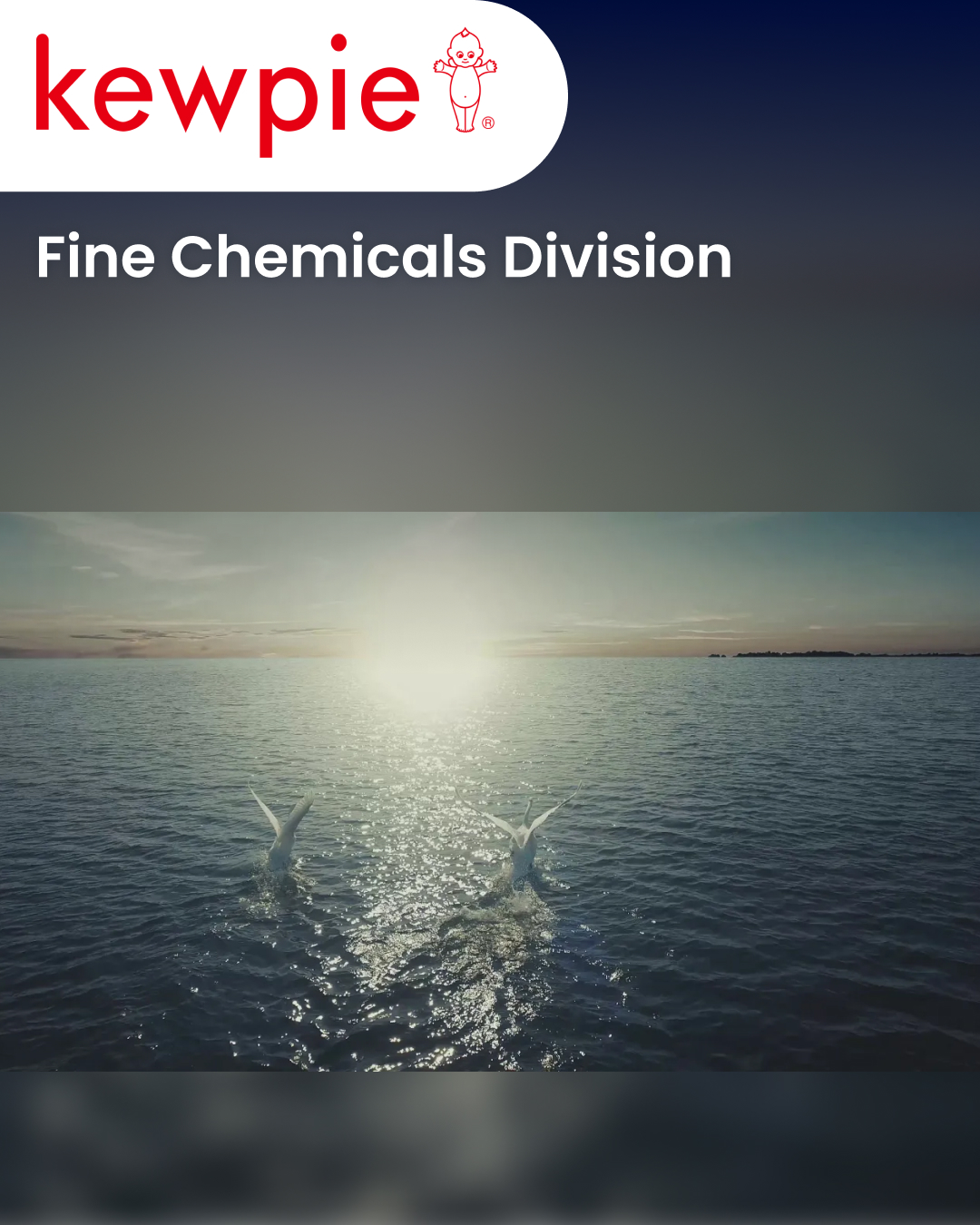09 Jan 2025
// PRESS RELEASE
09 Jan 2025
// PRESS RELEASE
25 Nov 2024
// PRESS RELEASE
Latest Content by PharmaCompass
 KEY PRODUCTS
KEY PRODUCTS
Kewpie is your partner for Sodium Hyaluronate & Hyaluronic Acid// CEP, USDMF, KDMF & JDMF registered.
About
CPhI North America CPhI North America
Industry Trade Show
Not Confirmed
20-22 May, 2025
Industry Trade Show
Attending
24-26 June, 2025
Industry Trade Show
Attending
16-18 July, 2025
CONTACT DETAILS





Events
Webinars & Exhibitions
CPhI North America CPhI North America
Industry Trade Show
Not Confirmed
20-22 May, 2025
Industry Trade Show
Attending
24-26 June, 2025
Industry Trade Show
Attending
16-18 July, 2025
CORPORATE CONTENT #SupplierSpotlight
https://www.pharmacompass.com/radio-compass-blog/excipient-market-overview-roquette-seqens-evonik-make-strategic-moves-new-guidelines-deal-with-contamination

09 Jan 2025
// PRESS RELEASE
https://www.kewpie.com/en/ir/pdf/accounts/2024/Summary_of_Consolidated_Financial_Statements_for_the_Fiscal_Year_Ended_November_30_2024.pdf

09 Jan 2025
// PRESS RELEASE
https://www.kewpie.com/en/ir/pdf/accounts/2024/Supplementary_Data_for_the_Fiscal_Year_Ended_November_30_2024.pdf

25 Nov 2024
// PRESS RELEASE
https://www.kewpie.com/en/ir/pdf/news/2024/Notice_regarding_Formulation_of_Medium-Term_Business_Plan.pdf

30 Sep 2024
// PRESS RELEASE
https://www.kewpie.com/en/ir/pdf/news/2024/Notice_regarding_Transfer_of_Fixed_Asset_and_Recording_of_Extraordinary_Gains.pdf

20 Aug 2024
// PRESS RELEASE
https://www.kewpie.com/en/newsrelease/pdf/2024/newsrelease_20240822.pdf

17 Jul 2024
// PRESS RELEASE
https://www.kewpie.com/en/newsrelease/pdf/2024/newsrelease_20240717.pdf
Excipients
Excipients by Ingredients
Excipients By applications
Inspections and registrations
ABOUT THIS PAGE
Kewpie Corporation is a supplier offers 5 products (APIs, Excipients or Intermediates).
Find a price of Sodium Hyaluronate bulk with DMF, CEP, JDMF offered by Kewpie Corporation
Find a price of Sodium Hyaluronate bulk with DMF, JDMF offered by Kewpie Corporation
Find a price of Hyaluronic Acid bulk with JDMF offered by Kewpie Corporation
Find a price of Sodium Hyaluronate bulk with JDMF offered by Kewpie Corporation
Find a price of Sodium Hyaluronate bulk offered by Kewpie Corporation





